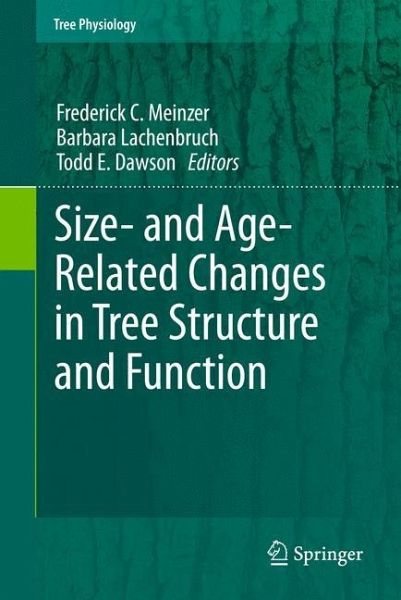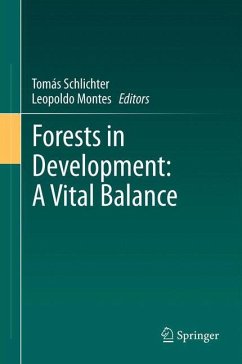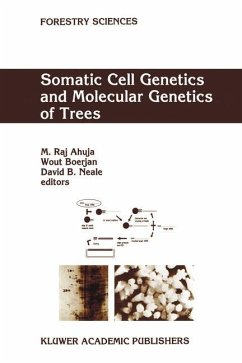
Size- and Age-Related Changes in Tree Structure and Function

PAYBACK Punkte
106 °P sammeln!
Millions of trees live and grow all around us, and we all recognize the vital role they play in the world's ecosystems. Publicity campaigns exhort us to plant yet more. Yet until recently comparatively little was known about the root causes of the physical changes that attend their growth. Since trees typically increase in size by three to four orders of magnitude in their journey to maturity, this gap in our knowledge has been a crucial issue to address. Here at last is a synthesis of the current state of our knowledge about both the causes and consequences of ontogenetic changes in key featu...
Millions of trees live and grow all around us, and we all recognize the vital role they play in the world's ecosystems. Publicity campaigns exhort us to plant yet more. Yet until recently comparatively little was known about the root causes of the physical changes that attend their growth. Since trees typically increase in size by three to four orders of magnitude in their journey to maturity, this gap in our knowledge has been a crucial issue to address. Here at last is a synthesis of the current state of our knowledge about both the causes and consequences of ontogenetic changes in key features of tree structure and function.
During their ontogeny, trees undergo numerous changes in their physiological function, the structure and mechanical properties of their wood, and overall architecture and allometry. This book examines the central interplay between these changes and tree size and age. It also explores the impact these changes can have, at the level of the individual tree, on the emerging characteristics of forest ecosystems at various stages of their development. The analysis offers an explanation for the importance of discriminating between the varied physical properties arising from the nexus of size and age, as well as highlighting the implications these ontogenetic changes have for commercial forestry and climate change. This important and timely summation of our knowledge base in this area, written by highly respected researchers, will be of huge interest, not only to researchers, but also to forest managers and silviculturists.
During their ontogeny, trees undergo numerous changes in their physiological function, the structure and mechanical properties of their wood, and overall architecture and allometry. This book examines the central interplay between these changes and tree size and age. It also explores the impact these changes can have, at the level of the individual tree, on the emerging characteristics of forest ecosystems at various stages of their development. The analysis offers an explanation for the importance of discriminating between the varied physical properties arising from the nexus of size and age, as well as highlighting the implications these ontogenetic changes have for commercial forestry and climate change. This important and timely summation of our knowledge base in this area, written by highly respected researchers, will be of huge interest, not only to researchers, but also to forest managers and silviculturists.












